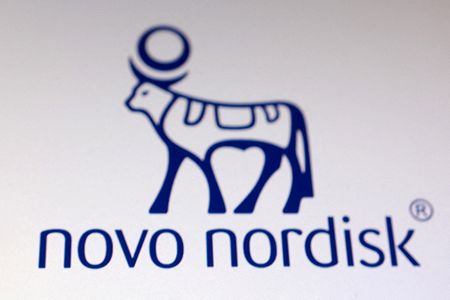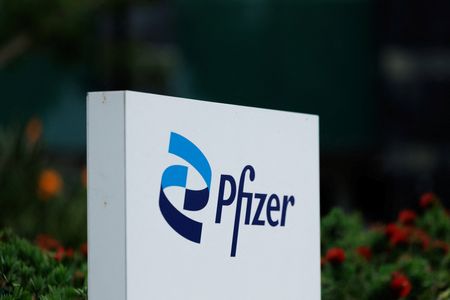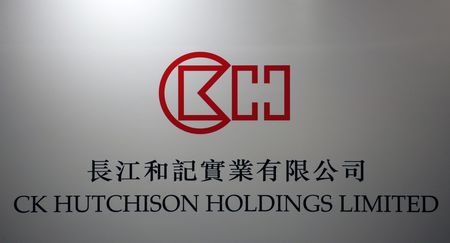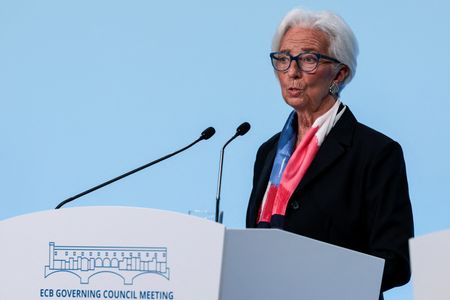By Jacob Gronholt-Pedersen, Louise Rasmussen and Maggie Fick
COPENHAGEN (Reuters) -Denmark’s Novo Nordisk launched a rival bid for U.S. obesity biotech firm Metsera on Thursday, hijacking an offer from Pfizer as the drugmakers jostled for advantage in the highly lucrative weight-loss drug market.
Novo Nordisk, the company behind blockbuster weight-loss drug Wegovy and diabetes drug Ozempic, bid up to $8.5 billion, including $6 billion upfront and later milestone payments. Pfizer’s bid was worth $7.3 billion including milestones.
Metsera in a statement said that Novo’s bid was “superior” and that it had notified Pfizer, which now has four business days to negotiate. It said that the Novo offer valued Metsera at up to $77.75 per share for a total of some $9 billion.
NOVO NORDISK FACES FIGHT-BACK FROM PFIZER
Metsera shares, which were already up nearly 100% since January, had climbed around 22% by 1445 GMT on Thursday.
Pfizer said Novo had made a previous rejected bid for Metsera. It called Novo’s revised offer “reckless” and bad for competition in the obesity drug market, adding it would “pursue all legal avenues” to defend its rights in the deal.
Novo Nordisk declined to comment on its previous bid, which was confirmed by several other sources.
It told Reuters its current offer “far exceeds” Pfizer’s and underscored its commitment to investing in the United States.
“We closely adhered to all of the restrictions under the Pfizer merger agreement and are confident that the facts and the law are on our side,” it said.
NOVO LOOKING TO BUILD NEXT-GEN OBESITY, DIABETES PIPELINE
The move signals an aggressive turn by Novo Nordisk a week after the ouster of most of the company’s board over concerns it was not moving fast enough in the obesity market, where it competes with main rival Eli Lilly.
New Novo CEO Mike Doustdar has pledged to build a robust pipeline of next-generation diabetes and obesity treatments, as it prepares for the approaching patent expiry of semaglutide, the active ingredient in Wegovy and Ozempic.
Metsera is one of several companies developing experimental weight-loss drugs, including one that could be taken less often than Novo and Eli Lilly’s products.
Paul Major, a portfolio manager at Bellevue Asset Management, said Metsera’s once-monthly obesity drug candidate was “a point of differentiation” that Novo did not have in its own pipeline and could help it better compete with Lilly.
“The deal would certainly help Novo improve their market position in obesity, assuming that the products can be developed successfully,” Markus Manns, a portfolio manager at mutual fund and Novo shareholder Union Investment, told Reuters.
NOVO BID FACES POTENTIAL ANTITRUST RISKS
Manns said Novo’s offer raised significant antitrust concerns and questions over whether Pfizer would make a counteroffer.
Pfizer said that Novo’s bid carried “substantial regulatory and executional risk”.
“It is an attempt by a company with a dominant market position to suppress competition in violation of law by taking over an emerging American challenger,” it said.
Pfizer’s CEO Albert Bourla has worked hard to strengthen his relationship with U.S. President Donald Trump.
It was the first drugmaker to break ranks and strike a deal to lower U.S. prescription drug prices, an agreement feted with an Oval Office announcement ceremony.
BIG PHARMA VIES FOR $150 BILLION OBESITY MARKET
The global obesity drug market is projected to reach $150 billion by the early 2030s, fuelled by the rapid adoption of GLP-1 therapies.
Both Pfizer and Novo have included contingent value rights in their bids for Metsera, offering additional payments contingent upon achieving clinical and regulatory milestones.
Leerink Partners analyst David Risinger has projected more than $5 billion in combined peak sales for Metsera’s pipeline.
Metsera, which went public this year and had a $5.5 billion market cap at Wednesday’s close, has a portfolio of experimental obesity drugs including MET-097i, a GLP-1 injectable, and MET-233i, which mimics the pancreatic hormone amylin.
Bernstein analyst Courtney Breen said the “bidding war” could see Pfizer “sharpen” its own offer and underscored the value of Metsera’s weight loss treatment assets – even if they remained years from coming onto the market.
(Reporting by Louise Breusch Rasmussen, Jacob Gronholt-Pedersen and Maggie Fick; Additional reporting by Sriparna Roy and Sabrina Valle; Writing by Adam Jourdan; Editing by Terje Solsvik and Joe Bavier)











